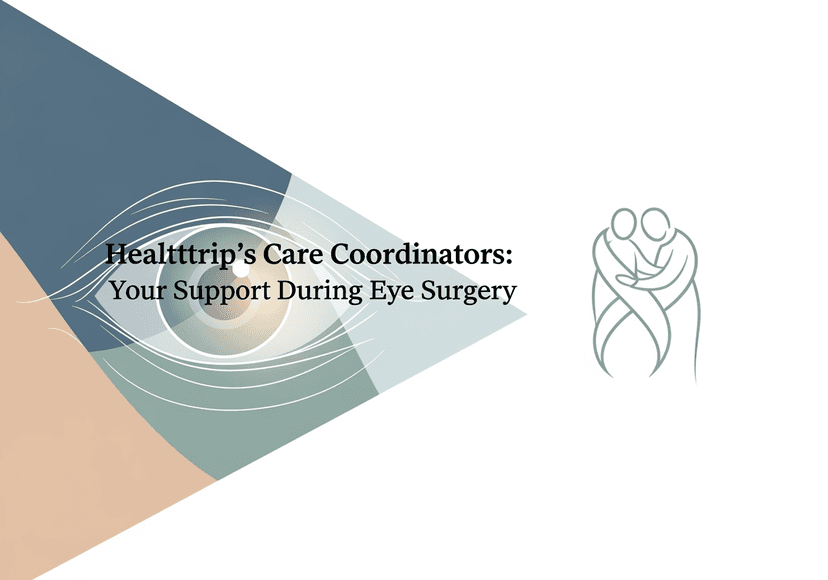
Mouth Cancer Symptoms: What to Look Out For
25 Nov, 2024
 Healthtrip
HealthtripWhen it comes to our health, it's easy to take things for granted until something goes wrong. We often neglect to prioritize our well-being, putting off check-ups and ignoring minor symptoms until they become major problems. But what if we told you that being proactive about your health could be the difference between life and death? Specifically, we're talking about mouth cancer – a disease that can be treated effectively if caught early, but can be devastating if left unchecked. As a leading medical tourism platform, Healthtrip is dedicated to empowering individuals to take control of their health, and that's why we're shedding light on the crucial symptoms of mouth cancer you should be looking out for.
What is Mouth Cancer?
Mouth cancer, also known as oral cancer, is a type of cancer that affects the lips, tongue, cheeks, floor of the mouth, hard and soft palate, sinuses, and salivary glands. It's a relatively rare disease, but the consequences of not detecting it early can be severe. According to the World Health Organization (WHO), mouth cancer is the 16th most common cancer worldwide, with an estimated 530,000 new cases and 292,000 deaths annually. The good news is that if caught early, mouth cancer has a high survival rate – but that requires being aware of the symptoms and seeking medical attention promptly.
Most popular procedures in India
Risk Factors for Mouth Cancer
Before we dive into the symptoms, it's essential to understand the risk factors associated with mouth cancer. While anyone can develop mouth cancer, certain individuals are more prone to it. These include people who: smoke or use tobacco products; consume excessive amounts of alcohol; have a history of human papillomavirus (HPV); have a family history of mouth cancer; or have been exposed to excessive sunlight or environmental carcinogens. If you identify with any of these risk factors, it's crucial to be extra vigilant about your oral health.
Wellness Treatments
Give yourself the time to relax
Lowest Prices Guaranteed!

Lowest Prices Guaranteed!
Common Symptoms of Mouth Cancer
Now that we've covered the basics, let's get to the crucial part – recognizing the symptoms of mouth cancer. Keep in mind that these symptoms can also be indicative of other conditions, so it's vital to consult a doctor or dentist if you experience any of the following:
Unusual Lumps or Swellings
One of the most common symptoms of mouth cancer is the appearance of unusual lumps or swellings in the mouth, lips, or throat. These can be painless, but they may cause discomfort or difficulty swallowing. If you notice any unusual growths, don't hesitate to get them checked out – early detection is key.
Unexplained Pain or Numbness
Experiencing unexplained pain or numbness in the mouth, tongue, or lips can be a sign of mouth cancer. This pain may be persistent, and it's essential to rule out other conditions before jumping to conclusions. If you're experiencing persistent pain or numbness, don't brush it off – consult a doctor or dentist.
Difficulty Swallowing or Chewing
Dysphagia, or difficulty swallowing, is a common symptom of mouth cancer. If you're having trouble swallowing, chewing, or speaking, it's crucial to seek medical attention. This can be a sign of a tumor or lesion in the mouth or throat, and early treatment can make all the difference.
White or Red Patches
White or red patches in the mouth can be indicative of mouth cancer. These patches may be painless, but they can be a sign of abnormal cell growth. If you notice any unusual patches, get them checked out – it's always better to be safe than sorry.
What to Do If You Suspect Mouth Cancer
If you're experiencing any of the symptoms mentioned above, it's essential to consult a doctor or dentist. They will perform a thorough examination, including a visual inspection and possibly a biopsy, to determine if you have mouth cancer. If diagnosed, treatment options may include surgery, radiation therapy, or chemotherapy. The key is to act quickly – the earlier you seek medical attention, the better your chances of successful treatment.
How Healthtrip Can Help
At Healthtrip, we understand the importance of timely medical attention. Our platform connects patients with top-rated hospitals and medical professionals worldwide, ensuring that you receive the best possible care for your specific needs. Whether you're seeking a second opinion, specialized treatment, or a more affordable option, we're here to guide you every step of the way. Don't let mouth cancer catch you off guard – take control of your health today.
Conclusion
Mouth cancer is a serious disease, but it's not invincible. By being aware of the symptoms and risk factors, you can take proactive steps to protect your health. Remember, early detection is key, and seeking medical attention promptly can be the difference between life and death. Don't wait until it's too late – take control of your health today. If you have any concerns or questions, don't hesitate to reach out to Healthtrip. We're here to empower you to take charge of your well-being.
Related Blogs

How Healthtrip Ensures Quality & Safety in Eye Surgery Procedures
Detailed guide on eye surgery, featuring doctors, hospitals, risks, recovery,

End-to-End Logistics for Eye Surgery with Healthtrip's Support
Detailed guide on eye surgery, featuring doctors, hospitals, risks, recovery,

Healthtrip's Care Coordinators: Your Support During Eye Surgery
Detailed guide on eye surgery, featuring doctors, hospitals, risks, recovery,

Top 5 Indian Hospitals for Eye Surgery
Detailed guide on eye surgery, featuring doctors, hospitals, risks, recovery,

Post-Eye Surgery Diet and Lifestyle Tips
Detailed guide on eye surgery, featuring doctors, hospitals, risks, recovery,

Common Risks in Eye Surgery and How Healthtrip Manages Them
Detailed guide on eye surgery, featuring doctors, hospitals, risks, recovery,










